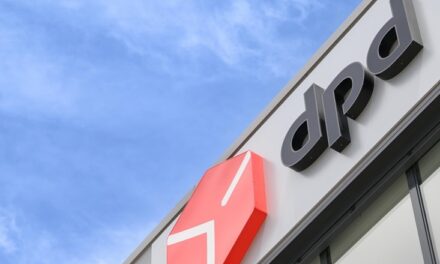
Parcelnet links up with Hermes
“We want to be part of the European network as part of Hermes,” Parcelnet’s Managing Director Carole Woodhead said. German-based Hermes is building up a European network with sister companies Parcelnet, Mondial Relay (France) and Porta a Porta (Italy) as well as its subsidiary in Austria.
Parcelnet is currently testing cross-border deliveries from Britain to Germany for TV shopping company QVC, Woodhead said. “More British companies are interested in Europe, and there are European customers with UK shipments,” she commented. The home delivery firm, which has so far used other European carriers for its cross-border shipments, is also in talks with France’s Mondial Relay over cooperation. “In future we want a common service offer,” she added.
Parcelnet currently handles about 110 million parcels a year, has revenues of over GBP 200 million (EUR 257 million) and “is a profitable company”, Woodhead stressed.
European distribution by linking up with sister company Hermes after successfully integrating two major acquisitions in the last two years, its managing director told CEP-Research in an interview.
“We want to be part of the European network as part of Hermes,” managing director Carole Woodhead said on the sidelines of last week’s Courier Parcel Logistics exhibition in London, where Parcelnet and Hermes had a joint stand. German-based Hermes is building up a European network with sister companies Parcelnet, Mondial Relay (France) and Porta a Porta (Italy) as well as its subsidiary in Austria.
Parcelnet is currently testing cross-border deliveries from Britain to Germany for TV shopping company QVC, Woodhead said. “More British companies are interested in Europe, and there are European customers with UK shipments,” she commented. The home delivery firm, which has so far used other European carriers for its cross-border shipments, is also in talks with France’s Mondial Relay over cooperation. “In future we want a common service offer,” she added.
Parcelnet currently handles about 110 million parcels a year, has revenues of over GBP 200 million (EUR 257 million) and “is a profitable company”, Woodhead stressed.
In its home market, Parcelnet has successfully completed the integration of Redcats, bought in spring 2007, and of the TNT Post/JD Williams courier network, acquired earlier this year, Woodhead said. “Redcats expanded our capacity with three new depots. There was no capacity expansion with TNT,” she noted. This expansion has left Parcelnet with a current network of 19 depots and 7,000 so-called “lifestyle” couriers. These are subcontracted self-employed delivery staff who are generally local people with in-depth knowledge of their area and their parcel customers.
The British B2C delivery market was “attractive and growing”, although the growth rates were slowing “to some extent”, Woodhead pointed out. “The internet has been a huge driver,” she said. But she noted: “There is more competition from B2B companies. We are seeing some over-lapping of B2B and B2C. This is good for customers and means more choice of services.”
In terms of products, Parcelnet offers two core services: a rapid 24-hour delivery and a standard 2-3 day delivery time. “A small number of larger customers use the 24-hour service, and smaller customers use the 2-3 day service,” she pointed out. In addition, Parcelnet offers premium options such as time-certain delivery (morning or afternoon).
The ongoing cooperation with DPD UK, branded “homecall”, enabled Parcelnet to target SMEs and was “a growth area”, Woodhead said. Under the cooperation, DPD collects B2C shipments from its customers and hands them over to Parcelnet for final delivery.












